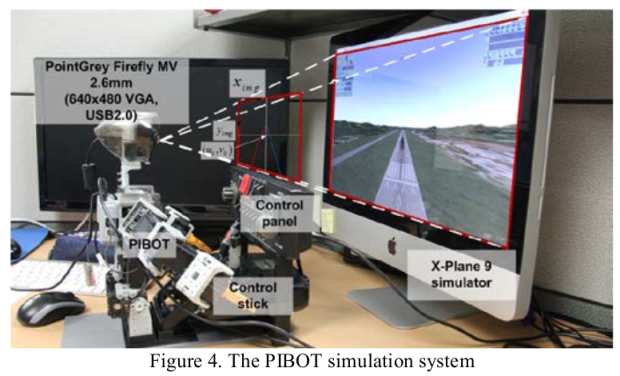
Source: About — Jetfoiler

It’s nearly impossible to keep your car’s paint looking perfect when you use it every day. It seems no matter what you do, highway debris, parking lot mayhem, and the sun’s UV rays do their fair share of damage to your pride and joy. Nothing short of a trip to a professional’s paint booth seems like a viable solution to the weathered appearance of your car.
Source: How To Make Your Car’s Face Pretty Again
This post walks you through repairing bumper gouges, bumper cracks and spot painting
British aeronautic engineering startup Gravity unveiled a new human flying suit today. It’s a six-engine jet-propelled personal flying apparatus that the company says will take regular humans to superhero heights at several hundred miles per hour.
Source: Iron Man IRL: Gravity and Red Bull unveil personal jetpack
Drones are getting more and more important in everyday’s life. Here’s everything you need to know about them, their benefits and how they will influence your future.
Source: 20 Ways Drones will Shape your Future
They also cover military UAVs
Source: A commuter’s dream: Entrepreneurs race to develop flying car
This article has a fairly good roundup of the flying car projects out there, even if they did leave out the Dutch Aeromobil Roadable project.
At a Colorado aircraft hangar, the two firms unveiled the triple-engined XB-1 prototype, a one-third sized prototype of the airliner they hope will be able to blast from London to New York in three hours and 15 minutes – air traffic control allowing.
“60 years after the dawn of the jet age, we’re still flying at 1960s speeds,” said Blake Scholl, chief executive officer and founder of Boom.
“Concorde’s designers didn’t have the technology for affordable supersonic travel, but now we do. Today, we’re proud to unveil our first aircraft as we look forward to first flight late next year.”
Boom, a product of the Y Combinator startup factory, claims that with advanced materials, more efficient engines that don’t require an afterburner that chews fuel, and a more efficient wing design, it can make supersonic travel a commercial reality for the cost of today’s business class – around $5,000 for a return transatlantic trip.
The firm envisages 170-foot long airliners with 60-foot wingspans that will seat 55 passengers, one on each side of the aisle. The finished craft will have a range of 4,500 nautical miles (long enough for New York or Washington to London), but Boom says it’ll be designed for refueling for trips with twice that range.
Source: Virgin Galactic and Boom unveil Concorde 2.0 tester to restart supersonic travel
When it gave the Tesla Model S an unprecedented 103 out of 100 score last August, Consumer Reports looked like it might try to marry Elon Musk’s company and have its little electric car babies. But after a year of disappointments, trust violations and janky-ass door handles, it seems the magazine can no longer advocate true love.
Source: Consumer Reports Now Ranks Tesla Among the Least Reliable Carmakers
This weekend, after much doubt as to whether his latest creation was real or not, jet ski champion Franky Zapata set a new Guinness World Record for the farthest hoverboard flight. I was there when it happened, and I’m here to tell you that this thing is real, and it’s spooky how it just hangs there, mid-air, until Franky bends his knees and zooms off toward the horizon. Here’s how he did it.
Source: This Is The Hoverboard We’ve All Been Dreaming Of
4 jet engines!
Because a thermite-blasting cannon isn’t crazy enough, Colin Furze used a pair of motors and propellers designed for parasailing to build himself a fully functional flying hoverbike. It’s easily one of the mad scientist’s most dangerous builds to date, but seeing how maneuverable it is almost makes us want to build one too.
Source: Mad Scientist Builds Fully Functional Hoverbike
Unless you went dumpster-diving outside SEMA or your uncle is Stacey David, you probably don’t have unlimited resources to throw at car modification. Thankfully, you friendly neighborhood Tavarish is here to help you frugal modders make your cars into something truly deserving of a voided warranty.
Source: Here Are Ten Cheap Mods That Will Transform The Way Your Car Drives
Luciad puts you in the seat of the Air Traffic Analyst.Review 24 hours of the entire world’s air traffic.Change between 2D and 3D. Zoom, pan, and tilt the 3D view.Pause, play and change the speed of the air traffic.Filter and focus on the flights, airports or airlines of your choice.
Source: LuciadRIA 3D Demo
Better than a flying car!
The Hoverbike is the result of years worth of R&D. We combined the simplicity of a motorbike and the freedom of a helicopter to create the world’s first flying motorcycle.When compared with a helicopter, the Hoverbike is cheaper, more rugged and easier to use – and represents a whole new way to fly. The Hoverbike flies like a quadcopter, and can be flown unmanned or manned, while being a safe – low level aerial workhorse with low on-going maintenance.
FlexFoil is a shape-changing assembly that replaces the flaps on a wing and can alter shape in flight to produce seamless bendable and twistable aerofoil surfaces. This allows the FlexFoil to act like a flap in its various positions while still providing an unbroken air surface. This makes for a more streamlined wing and reduces noise during takeoffs and landings. Importantly, it’s designed not only for new aircraft designs, but for retrofitting to existing ones.
via NASA tests aircraft with shape shifting wings.
The little robot in the picture above is a PIBOT, a small, very low-cost humanoid (actually a Bioloid Premium from Robotis). It’s been slightly modified to be able to work the controls of a scaled-down, simulated aircraft cockpit, as in the pic above. PIBOT is able to identify and use all of the buttons and switches and stuff that you’d find in the cockpit of a normal light aircraft designed for humans

via Tiny Humanoid Robot Learning to Fly Real Airplanes – IEEE Spectrum.
the DeepFlight Dragon will become the most compact, lightweight personal submarine on the market, and has been designed to be so intuitive to use that users will be able self-pilot the craft with minimal instruction. This new level of user-friendliness is expected to take DeepFlight’s underwater craft beyond the domain of the superyacht owner and into the resort and tourism industry for the first time.
via DeepFlight Dragon set to usher in the era of the personal submarine.
British scientist Roger Shawyer has been trying to interest people in his EmDrive for some years through his company SPR Ltd. Shawyer claims the EmDrive converts electric power into thrust, without the need for any propellant by bouncing microwaves around in a closed container. He has built a number of demonstration systems[…]a US scientist, Guido Fetta, has built his own propellant-less microwave thruster, and managed to persuade Nasa to test it out. The test results were presented on July 30 at the 50th Joint Propulsion Conference in Cleveland, Ohio. Astonishingly enough, they are positive[…]he Nasa team has avoided trying to explain its results in favour of simply reporting what it found: “This paper will not address the physics of the quantum vacuum plasma thruster, but instead will describe the test integration, test operations, and the results obtained from the test campaign.”[…]A working microwave thruster would radically cut the cost of satellites and space stations and extend their working life, drive deep-space missions, and take astronauts to Mars in weeks rather than months. In hindsight, it may turn out to be another great British invention that someone else turned into a success.
via Nasa validates 'impossible' space drive (Wired UK).
The Malaysian government is giving away a pdf with the satellite data to all takers, hoping maybe the public can find something no-one else to date has been able to…
MH370 Data Communication Logs.pdf.
A hybrid conversion is a cutting-edge technology designed to transform your existing vehicle, or a new one via ship-thru installation, into a hybrid electric vehicle. XL Hybrids system is designed to work on the most popular Class 1-3 fleet vehicles, including cargo/utility/shuttle vans.
By adding hybrid powertrains to your fleet, you can cut fuel costs, reduce your exposure to fuel price fluctuations, and reduce emissions.
XL Hybrids adds an electric motor, an advanced lithium ion battery pack, and sophisticated control software to the vehicle – without making significant modifications to the original equipment manufacturer’s (OEM) internal combustion engine or transmission.
XL Hybrids’ parallel hybrid system saves fuel through regenerative braking, a process by which the electric motor helps slow the vehicle when drivers brake, charging the battery. The battery then releases the energy to the electric motor, helping propel the vehicle when drivers accelerate.
via Hybrid Technology Engineered For Commercial Fleets | XL Hybrids.
The Woking-based firm’s chief designer Frank Stephenson told The Sunday Times that the system was already being used by the military.
‘It took a lot of effort to get this out of a source in the military. I asked why you don’t see wipers on some aircraft on when they are coming in at very low levels for landing.
‘I was told that it’s not a coating on the surface but a high frequency electronic system that never fails and is constantly active. Nothing will attach to the windscreen.’
The system is expected to be introduced to McLaren’s range of sportscars which cost between £170,000 and £870,000, but once perfected could be produced for the mass market for as little as £10.
Paul Wilcox, professor of ultrasonics at Bristol University’s faculty of engineering, told The Sunday Times: ‘The obvious way of doing it is to have an ultrasonic transducer in the corner of the windscreen that would excite waves at around 30kHz to bounce across the windscreen.’
McLaren confirms it's developing new wiper-free windscreens | Mail Online.
Stefan Klein, a designer from the Slovak Republic, has announced the first flight of his Aeromobil Version 2.5, a flying car prototype he has been developing over the last 20 years.
via Aeromobil flying car prototype gets off the ground for the first time.
Flying cars have been around for some time in some form or other. This one – designed in the Netherlands – only requires a recreational pilot’s license.

Yes, wearing a helmet will protect you some if you fall at certain speeds, but those accidents are very rare. If you feel that strongly about it, you should wear one when climbing a ladder and whilst taking a bath.
But because people wear helmets on bikes, it makes it look like biking is a high risk activity, which discourages them from biking.
To Encourage Biking, Lose the Helmets – Slashdot.